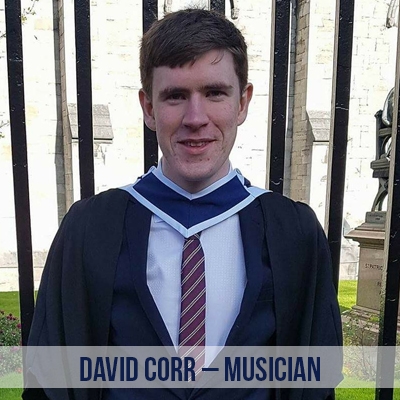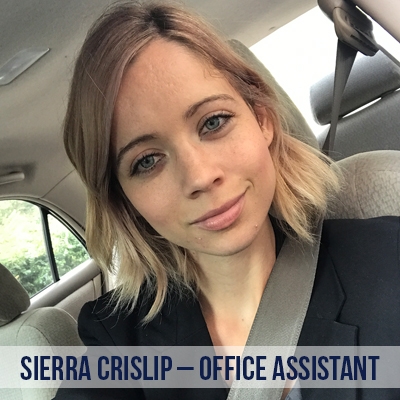
For many young adults with HH, the transition from school to work or higher education can be complicated by epilepsy. Even for those who are seizure-free, there may still be memory challenges, anxiety issues, attention and focus limitations, as well as a lack of processing speed and awareness of social cues.
One of the most important skills any individual can master is the ability to advocate for themselves in a variety of situations. Many individuals with HH have experienced an environment, at one time or other, where others have spoken for them or they have struggled with making themselves heard due to poor cognitive or communication skills.
Many young adults with disabilities under the age of 20 are not developmentally ready to think very far into the future. Some will become stressed, angry, or withdrawn if pushed too directly or too early to think about choices outside of their experience. Yet research shows that if they can see their dreams as possible paths toward employment, they are more likely to reach their career goals. Early, ongoing career exploration can help you raise the topic at times when a young adult is most receptive.
Consider these Career Exploration Ideas
Young adults may want to consider participating in formal programs like:
- apprenticeships
- job shadowing
- community- or faith-based service projects
- programs open to high school students at a community college, university, or technical school
- specialized summer camps
Career exploration also can include informal experiences like:
- visiting technical schools
- starting a lawn care, dog-walking, or other business
- touring a manufacturing company
- volunteering
There are many stories of young adults with HH that have been successful in making the transition from their dreams to employment a reality. We thought we would share a couple of those stories with you!
David Corr – Musician

What is your current job?
I am just qualified as a professional classical musician. I have a contract as a paid cantor in a church. This is part time work and my first real paid job. I also have freelance work with 2 opera companies and I sing as a paid singer with an orchestra. I am also continuing with my studies also so I can apply for bigger parts and go Abroad. As a musician, you are mostly self-employed but I am lucky to have an annual contract too.
How did you go about applying for the job?
I sent my CV to opera companies and I get freelance work. The university I attend sent out an email on behalf of the Church advertising for a professional singer. I auditioned along with several others and was lucky to get the position.
Did you have to do an interview and if so, was that a challenge for you?
Yes, I had to do an interview and audition. I never had jobs in shops etc, like other students while I was studying as I felt I didn’t have the skills and ability to be organised enough and didn’t have the confidence. All my work is related to music. I am confident when being interviewed about this.
What do you like best about your current job?
I love my job because I am doing something I really enjoy and is based on 4 years of studying an honours degree.
What are your biggest challenges and how do you compensate for those challenges?
My biggest challenge is managing my timetable as it is not regular hours or tasks and this has always been a challenge. I find it difficult when I have a lot on and sometimes mix up dates but I have got much better at this now. I use my phone for everything like managing my diary. I also always share this with my parents as a backup! I take each day as it comes and make ‘to do’ lists. A typical week for me is my regular weekend work as a cantor and then at short notice I have to sing at funerals which only gives me a day to prepare the repertoire. Families often have special requests for music which is very last minute and I am pressured to prepare and perform professionally. I have to link in with the family and organist. On top of this I have 2-3 rehearsals per week for opera or concerts etc. This on top of continuing to study is very challenging but I have learned to cope and manage myself. I literally work each day as it comes, otherwise it would be overwhelming to me.
Do you drive or use other means of transportation to get to and from work?
No. I use public transport.
In general, what are your greatest challenges when it comes to keeping a job?
I think I am different as my work is not the usual type of work like working in an office. I think I would have greater challenges there and therefore it was really important to develop my career in music, something I was good at. I think if it is something you enjoy it makes it easier to hold down the job and be successful.
Have past bosses been understanding of your limitations?
The world I work in doesn’t make allowances which I have learned to deal with. When I started out things like learning music by memory was difficult for me but the directors (my bosses) would not make allowances. I have, with practice, got better at this. I also have learned to take lots of knocks along the way and not be so sensitive. That has been the hardest part but I am getting stronger all the time.
Are you comfortable advocating for yourself when you are struggling in a new position or do you prefer to try and “cope” on your own?
I generally try to cope on my own but on occasion I have had to let people know that learning is a bit more challenging and why, but this rarely happens now.
What words of advice would you have for others with HH that may be struggling to get their first job?
- Focus on the long-term and not the short-term. Decide on what you would like to do and put the building blocks in place.
- Don’t spread yourself too thinly and apply for everything. Focus on one or two jobs and prepare well.
- Try to do something you care about and enjoy as you will be far more likely to succeed
- Think about self-employment and what supports you need to be self-employed. Being your own boss gives you more control and you can manage your weaknesses better
Sierra Crislip – Office Assistant
 What is your current job?
What is your current job?
I am an Office Assistant
Why did you apply for this particular job?
I applied for this job because I wanted to find a rewarding career with excellent benefits.
Did you have to do an interview and if so, was that a challenge for you?
Yes, I had to do an interview. I was a bit nervous, but I brought a cold water with me to ease my anxiety and practiced and practiced in front of the mirror.
Did you get assistance from your state vocational rehabilitation services?
Yes, I did get assistance from the Department of Rehabilitation. Once a week, I would go to my Department of Rehab and meet up with an employment counselor and she helped me apply for State jobs and a few weeks later, this company called me.
What do you like best about your job?
What I like best about my job is the kindness that everyone has.
What are your biggest challenges and how do you compensate for those challenges?
My biggest challenges are learning new things, but I try my hardest and ask my supervisor any questions that come to mind and take notes as she answers. I also struggle making conversations, but always make sure I smile at others and greet them.
What is one challenge you wish your employer understood better?
Having people see your disabilities, because it is not visible to the naked eye.
Are you comfortable advocating for yourself when you are struggling in a new position or do you prefer to try and “cope” on your own?
It takes effort and strength to advocate for myself, as I get high anxiety and stressed. Talking to family before I make decisions at work helps me to reach out and speak to supervisors when I am struggling.
What skills would you like to learn that you don’t have presently that you think would help you thrive in a job?
Some skills that I would like to learn is to become a quick learner, and it would be beneficial so I wouldn’t have to keep asking questions and I would like to have Public Speaking skills. I think it helps to be confident in yourself and be a team leader. I am working on it every day and practicing by taking a few deep breaths and just taking it easy.
What words of advice would you have for others with HH that may be struggling to get their first job?
My advice for those with HH that are struggling to find their first job is that just because you have a disability, doesn’t mean you can’t succeed. In my experience, I just kept trying and never gave up. Keep your head up and know that you can do anything you desire!
Hope for HH would like to thank both David and Sierra for their stories! They inspire and encourage us all to advocate for ourselves on the job as well as explore all opportunities, both traditional and nontraditional!!
Do you have a story about your career or job experience? We would LOVE to hear more about the challenges and successes when it comes to HH and employment!
Additional Resources for Employment and Transition:





